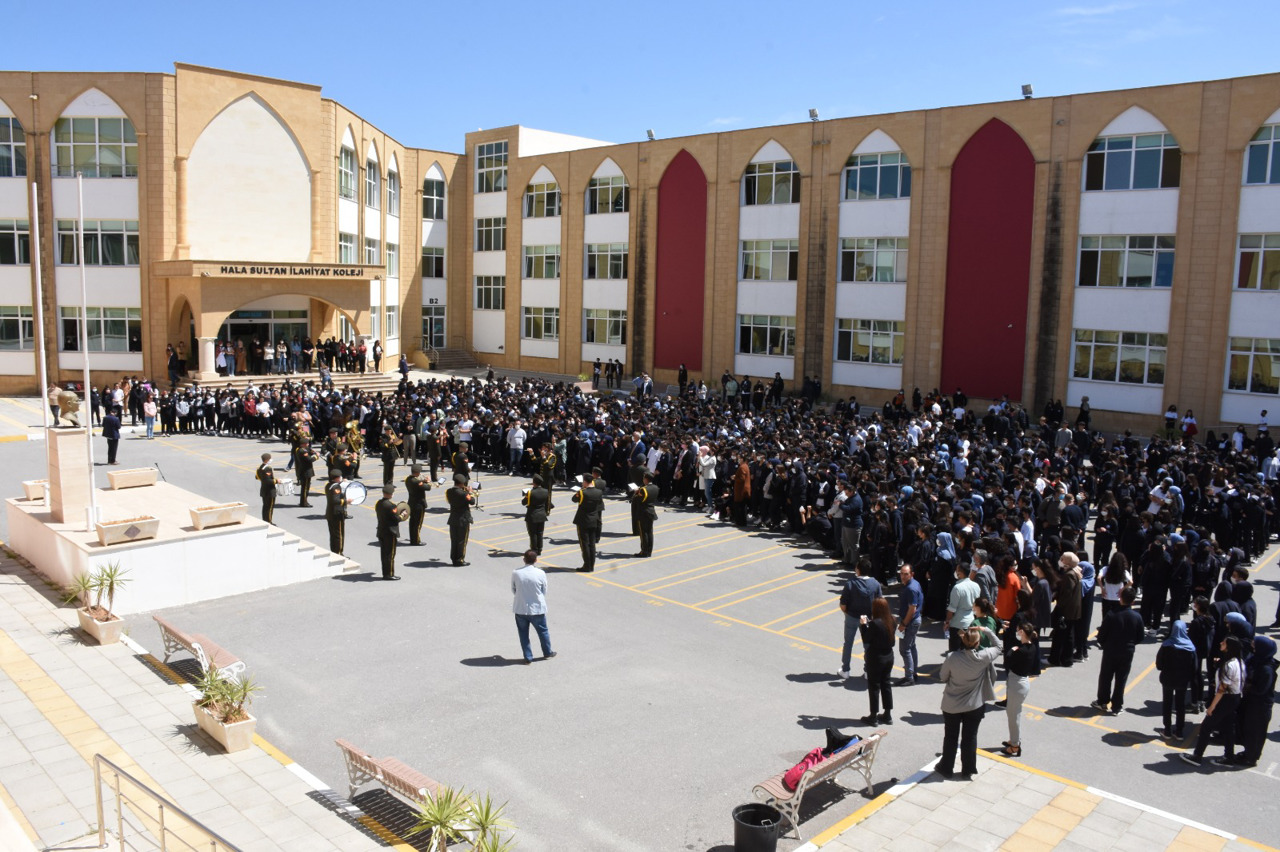Trade unions and political parties in the north have reacted with fury after the Cyprus Turkish educators’ union (Kibtes) sent a six-page report to Turkish Vice President Cevdet Yilmaz demanding that more religion classes are taught in the north’s schools.
The six-page report was penned by Kibtes’ chairman Himmet Turgut, who works at the controversial Hala Sultan theology college in Mia Milia, and was first revealed to the public by newspaper Ozgur Gazete.
It called for children as young as four years old to be given “religious information courses”, provided by either the north’s religious affairs directorate or by the Turkish embassy in Nicosia’s religious affairs advisory board.
It also decried the lack of “religious culture and moral knowledge” courses being taught at public schools in the north, saying that such courses are not taught at public primary schools “despite that being a constitutional obligation”, and that in public middle and high schools, the courses are not taught enough.
“A religious culture and moral knowledge course is available as an elective at public high schools, but the children do not choose the course and therefore it is not taught. In middle schools, the course is taught for one hour per week, but this is not enough. Having it for two hours per week would increase efficiency,” the report said.
It added that Greek and French language courses are also available as electives, and that teachers are hired to teach these courses “every year”. As such, it said, corresponding hires should be made for teachers to teach “religious culture and moral knowledge”.
It also said that the opening of a new theology college in Famagusta, which was approved by the north’s cabinet in 2023, is a “great need”, and that work should be “accelerated” to have the school ready for the beginning of the next academic year this autumn.
Elsewhere, the report called for a “religious culture and moral knowledge” teacher to be employed at every single primary school in the north, and that an increase in the teaching of such courses should be done in line with the hours taught in Turkey, to ensure “harmony”.
It also called for the “religious culture and moral knowledge” courses to be mandatory at private middle and high schools in the north, even those of which the language of instruction is English.
Additionally, it called for four religion courses to be introduced at the north’s Ataturk teacher training academy (AOA) – “religious culture and moral knowledge”, “basic religious knowledge”, “the life of our prophet”, and another course based on the Quran.
The report then turned its attention to the Republic’s education system, pointing out that two hours of religious education per week are mandatory in primary, middle, and high schools in the Republic.
It said religious courses “have a paramount place” in Greek Cypriot schools, and that “the government makes it mandatory to attend religious services before major Greek Orthodox religious holidays in public spaces and to receive a Greek Orthodox religious education”.
“The religious education in its schools is predominantly based on Orthodox Christianity, Orthodox Christian worship, and Hellenism,” it added.
Teachers’ trade union Ktoeos leader Selma Eylem was quick to react, describing Kibtes as an “embassy-backed union” and saying its report is part of “efforts to put ideological pressure on teachers”.
“Embassy officers work at the education ministry and all education-related work is managed by the embassy,” she said, adding that there is a pipeline of people from Turkey arriving in the north, being granted citizenship of the ‘TRNC’, becoming teachers, and being assigned to work in schools.
She added that it is the “mufti”, a colloquial name for the religious affairs director, who “supervises teachers”.
“In the past, the ministry has informed people who have complained in writing about teachers that they do not have the authority to open investigations into teachers sent from Turkey … The embassy is continuing its attacks on the Turkish Cypriot community through its puppets,” she said.
Opposition political party the CTP also weighed in on the matter, saying, “we reject and openly condemn the statement and the report, which contain serious risks of dividing society and targeting teachers”.
“While there are dozens of problems in our schools, such as our children being taught in portacabins and in overcrowded classes, and there is still a shortage of teachers, the fact that discussions have been turned to how many hours of ‘religious culture and moral knowledge’ classes are given is striking,” it added.
It said this report was proof that Kibtes “is not concerned about a quality, modern education”.
“Religious culture and moral knowledge” courses were first introduced in the north in 2009, with the Hala Sultan theology college being opened three years later in 2012.
Questions have been raised in recent years over what some have seen as an imposition of religion in the north by the Turkish government, which itself has become more religious over recent decades.






Click here to change your cookie preferences